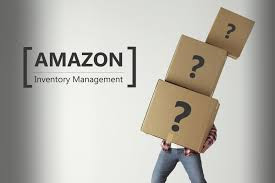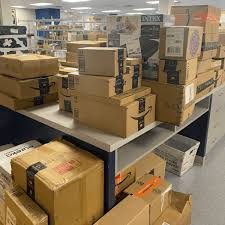Closeout Distributors Advantages, How to Find and Tips for Successful Partnership
In today's competitive business landscape, finding ways to maximize profits while minimizing costs is crucial. One avenue that many businesses explore is partnering with closeout distributors. These distributors play a vital role in the supply chain by offering surplus or discontinued merchandise at discounted prices. Closeout distributors are companies or individuals that purchase excess inventory, discontinued products, or overstock items from manufacturers, wholesalers, or retailers at significantly reduced prices. They act as intermediaries between manufacturers or wholesalers looking to offload surplus inventory and businesses seeking discounted products to resell or use in their operations.
Advantages of Working with Closeout DistributorsPartnering with closeout distributors offers several benefits for businesses:
Cost Savings
One of the primary advantages is cost savings. Closeout distributors offer merchandise at below-market prices, allowing businesses to procure inventory at a fraction of the cost compared to traditional channels.
Access to a Wide Range of Products
Closeout distributors deal with various types of merchandise, ranging from apparel and electronics to home goods and accessories. This diversity provides businesses with access to a broad selection of products to meet their specific needs.
Quick Inventory Turnover
By purchasing surplus inventory from closeout distributors, businesses can quickly replenish their stock and keep up with consumer demand. This rapid turnover helps prevent stagnation and ensures a fresh selection of products for customers.
Opportunities for Profit
Buying discounted merchandise from closeout distributors creates opportunities for businesses to increase their profit margins. By acquiring products at low prices and selling them at competitive rates, businesses can generate higher returns on their investment.
How to Find Reliable Closeout Distributors
Online Platforms
Online marketplaces and B2B platforms are excellent resources for finding reputable closeout distributors. Websites dedicated to surplus inventory often feature a wide range of products from various distributors.
Industry Trade Shows
Attending trade shows and industry events allows businesses to connect with closeout distributors in person. These events provide opportunities to network, negotiate deals, and establish partnerships.
Networking
Building relationships within the industry can lead to valuable connections with closeout distributors. Joining trade associations, attending networking events, and engaging with other businesses in the sector can provide insights and recommendations.
Factors to Consider When Choosing Closeout Distributors
When evaluating potential closeout distributors, businesses should consider the following factors:
Reputation and Reliability
It's essential to work with reputable distributors known for their reliability and integrity. Checking references, reading reviews, and verifying credentials can help ensure a positive partnership.
Product Quality
While discounted prices are appealing, businesses should prioritize product quality. Inspecting samples, reviewing product specifications, and requesting certifications can help assess the quality of merchandise offered by distributors.
Pricing and Terms
Negotiating favorable pricing and terms is key to maximizing the benefits of working with closeout distributors. Businesses should seek competitive pricing, flexible payment options, and reasonable terms for returns and exchanges.
Location and Logistics
Considering the location of the closeout distributor is crucial for efficient logistics and timely delivery. Choosing a distributor with convenient access to transportation networks can streamline the supply chain process.
Tips for Successful Partnership with Closeout Distributors
To build a successful partnership with closeout distributors, businesses should follow these tips:
Clear Communication
Maintaining open and transparent communication is essential for fostering a positive relationship. Communicating expectations, timelines, and requirements helps prevent misunderstandings and ensures alignment.
Building Trust
Trust is the foundation of any successful partnership. Businesses should strive to build trust with closeout distributors by honoring commitments, delivering on promises, and resolving issues promptly.
Flexible Negotiation
Negotiating with closeout distributors requires flexibility and creativity. Being willing to compromise and explore mutually beneficial solutions can lead to favorable outcomes for both parties.
Continuous Evaluation
Regularly evaluating the partnership and performance of closeout distributors is necessary for ongoing success. Monitoring sales data, customer feedback and market trends can help identify areas for improvement and optimization.
Challenges of Working with Closeout Distributors
Despite the benefits, there are some challenges associated with working with closeout distributors:
Inconsistent Inventory
Closeout distributors may not always have consistent inventory levels or availability. Businesses may need to adapt their purchasing strategies to accommodate fluctuations in stock.
Limited Product Availability
While closeout distributors offer a wide range of products, availability may be limited to specific quantities or styles. Businesses should be prepared to adjust their inventory accordingly.
Risk of Counterfeit Goods
There is a risk of encountering counterfeit or substandard merchandise when dealing with closeout distributors. Conducting due diligence and verifying product authenticity can help mitigate this risk.
Conclusion
Closeout distributors play a valuable role in the retail ecosystem, offering businesses access to discounted merchandise and opportunities for profit. By understanding how to find reliable distributors, evaluating key factors, and implementing best practices, businesses can build successful partnerships and drive growth.
FrequentlyAsked Questions
Are closeout distributors the same as liquidators?
Closeout distributors and liquidators both deal with surplus inventory, but there are differences in their business models and the types of merchandise they offer.
How can businesses protect themselves from counterfeit goods when working with closeout distributors?
Businesses can protect themselves by conducting thorough due diligence, verifying product authenticity, and purchasing from reputable distributors.
What industries commonly utilize closeout distributors?
Various industries, including retail, e-commerce, wholesale, and manufacturing, leverage closeout distributors to source discounted merchandise.
Can small businesses benefit from partnering with closeout distributors?
Yes, small businesses can benefit from the cost savings and access to a wide range of products offered by closeout distributors.
What are some potential drawbacks of working with closeout distributors?
Potential drawbacks include inconsistent inventory, limited product availability, and the risk of encountering counterfeit goods.




Comments
Post a Comment